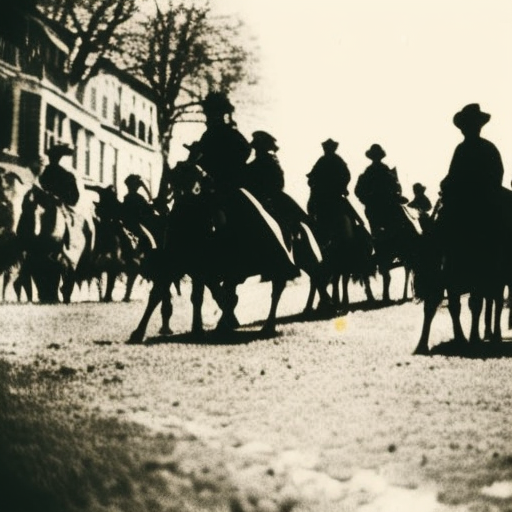The Glorious Revolution (1688)
The Glorious Revolution of 1688 was a significant event in English history that resulted in the overthrow of King James II and the establishment of a constitutional monarchy. It marked the beginning of a new era of parliamentary power and religious tolerance in England.
Background
King James II, a Catholic, ascended to the throne in 1685, following the death of his brother Charles II. His religious affiliation and his attempts to increase Catholic influence in England created tension among the predominantly Protestant population. James’s policies, such as appointing Catholics to key positions and granting religious freedom to Catholics, alarmed many Protestants, who feared a return to Catholic rule.
The Glorious Revolution
In 1688, a group of Protestant nobles and politicians, known as the “Immortal Seven,” invited William of Orange, a Protestant Dutch prince and James II’s son-in-law, to invade England and take the throne. William, along with his wife Mary, who was James II’s Protestant daughter, agreed to the invitation and assembled a fleet to sail to England.
In November 1688, William and his army landed in England without facing any significant opposition. Many of James II’s supporters, including key military leaders, defected to William’s side. James II, realizing he had lost the support of his subjects, fled to France.
The Bill of Rights
In February 1689, the English Parliament declared that James II had abdicated the throne and offered it to William and Mary as joint monarchs. However, their accession was conditional upon accepting the terms outlined in the Bill of Rights.
The Bill of Rights, passed by Parliament in December 1689, established several important principles. It affirmed the supremacy of Parliament over the monarchy, ensuring that the monarch could not rule without the consent of Parliament. It also guaranteed certain individual rights, such as the right to petition the king, the right to a fair trial, and the prohibition of cruel and unusual punishment.
Furthermore, the Bill of Rights prohibited the monarch from being Catholic or marrying a Catholic. It also granted freedom of worship to Protestants and limited the powers of the monarchy, ensuring that future monarchs would rule in accordance with the law and with the advice of Parliament.
Impact
The Glorious Revolution had far-reaching consequences for England and beyond. It marked the end of absolute monarchy and the beginning of a constitutional monarchy, where the powers of the monarch were limited by law and subject to the consent of Parliament. This shift in power laid the foundation for modern parliamentary democracy in England.
The Glorious Revolution also had significant religious implications. The Bill of Rights guaranteed religious freedom to Protestants, but it did not extend the same rights to Catholics. However, it did establish a level of religious tolerance that was unprecedented in England at the time.
Internationally, the Glorious Revolution had a profound impact. It signaled the decline of Catholic influence in Europe and the rise of Protestant power. It also had implications for the balance of power in Europe, as William of Orange, now King William III, became a key player in the European conflicts of the late 17th century.
In conclusion, the Glorious Revolution of 1688 was a pivotal event in English history. It resulted in the overthrow of King James II, the establishment of a constitutional monarchy, and the enactment of the Bill of Rights. This event marked a significant shift in power from the monarchy to Parliament and laid the foundation for modern parliamentary democracy in England.












